Meet Our Panelists
(Shortened List, More Panelists In Attendance)
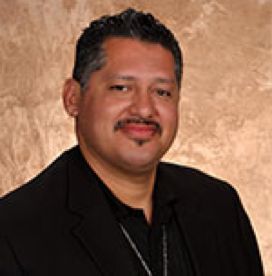
Rey Leon – Mayor of Huron,CA
REY LEÓN Born in Fresno and raised in the Huron area. Mr. León is a graduate of the University of California at Berkeley where he obtained a BA in Chicano Studies with an emphasis in public health. He is the founder and Executive Director of the San Joaquin Valley Latino Environmental Advancement & Policy Project (Valley LEAP), a Latino Valley based environmental non-profit organization. Mr. León is based in Fresno for the Valley and focuses on environmental, economic & climate justice, community development and education equity. Mr. Leon has been working to ensure that environmental justice principles are advanced in the regions institutions and culture but is evolving LEAP to also embark on economic and social justice issues. Most recently, Mr. Leon was elected as the Mayor of his hometown of Huron, CA.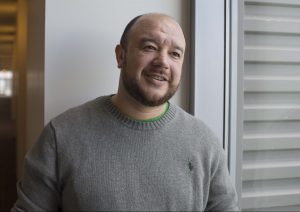
Professor Mario Sifuentez – UC Merced
Dr. Sifuentez obtained his PhD in American Studies at Brown University, focusing his dissertation on Mexican workers in the Pacific Northwest. It was there where he began teaching and was awarded Top Ten Classes in Rhode Island by Rhode Island Monthly for his Sports, Race, and Gender course. He began his professional career at the University of California, Merced, in the heart of the California’s Central Valley. On campus he sits on the Undergraduate Council, Athletic Advisory Committee, and is a member of the Critical Race and Ethnic Studies working group. You can learn more about Dr. Sifuentez’s work from his website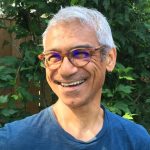 Professor Michael Mascarenhas-UC Berkeley
Professor Michael Mascarenhas-UC Berkeley
Mascarenhas holds an MS in forestry from the University of British Columbia (UBC) and a PhD in sociology from Michigan State University. He was a postdoctoral fellow at the Centre for Applied Ethics at UBC and has held teaching appointments at Kwantlen Polytechnic University and Rensselaer Polytechnic Institute. In over a dozen publications, he has written on water, wolves, seed-saving, standards, supermarkets, public participation, family farms, and forests. His current research and book project examines water access in the cities of Flint and Detroit. Mascarenhas was an expert witness at the Michigan Civil Rights Commission in 2017 on the Flint Water Crisis, and an invited speaker to the National Academies of Sciences, Engineering, and Medicine’s Committee on Designing Citizen Science to Support Science Learning.
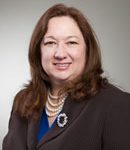 Professor Catherine Sandoval- Santa Clara University
Professor Catherine Sandoval- Santa Clara University
Professor Sandoval is a tenured member of the Santa Clara University School of Law faculty which she joined in 2004, as well a Commissioner at the California Public Utilities Commission.Prior to joining the Santa Clara Law faculty, Professor Sandoval served as the Undersecretary, and previously as the Staff Director of the State of California’s 47,000-employee Business, Transportation, and Housing Agency. From 1994-1999 she was a senior manager at the Federal Communications Commission (FCC) and was the Director of the FCC’s Office of Communications Business Opportunities.Sandoval attended Oxford University on a Rhodes Scholarship, and she was the first Latina in the nation to receive this honor. She graduated magna cum laude from Yale University, earned an M. Litt in Politics at Oxford, and a J.D. at Stanford Law School where she served on the Stanford Law Review. She hails from East Los Angeles and lives with her family in the Silicon Valley.
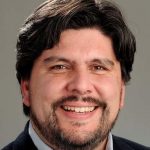
Vice Chancellor for Equity and Inclusion Oscar Dubón, Jr.-UC Berkeley
Professor Oscar Dubón, Jr. is the third Vice Chancellor for Equity and Inclusion, at UC Berkeley. Dubón is the Associate Dean for Student Affairs and Associate Dean for Equity and Inclusion in the College of Engineering, a Professor in the Department of Materials Science & Engineering, and a Faculty Scientist at the Lawrence Berkeley National Laboratory. He received a B.S. from UCLA in 1989 and M.S. and Ph.D. from Berkeley in 1992 and 1996. After postdoctoral positions at Berkeley and Harvard University, he joined the Berkeley faculty in 2000. His research focuses on understanding the role of crystalline imperfections on the electronic behavior of materials for applications in semiconductor technologies. Professor Dubón is the recipient of the 2000 Robert Lansing Hardy Award from the Minerals, Metals and Materials Society, a 2004 CAREER Award from the National Science Foundation, and the 2004 Presidential Early Career Award for Scientists and Engineers (PECASE).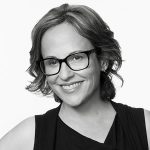
Adrianna Quintero – NRDC Director of Partner Engagement
Prior to joining NRDC, Adrianna was an attorney with Defender Association of Philadelphia. She is based in NRDC’s San Francisco office where she cultivates partnerships with diverse communities nationwide in support of environmental advocacy efforts. A leading expert in diverse partnerships and an NRDC senior attorney, she initiated NRDC’s Latino outreach efforts and is the cofounder/director of Voces Verdes, a national coalition that connects Latino businesses, community leaders, and organizational partners with government decision makers calling for action on climate change and clean energy. Quintero holds a bachelor’s degree in communication and media studies from University of Miami and a J.D. from Boston University School of Law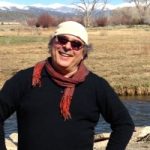
Professor Devon Pena- University of Washington
Devon Peña is Professor of Anthropology, American Ethnic Studies, and Environmental Studies at the University of Washington since 1999. He is also Founder and President of The Acequia Institute, the nation’s first Chicana/o nonprofit foundation dedicated to the protection of the “water democracy” of Colorado and New Mexico acequias (community irrigation associations) and grant maker to the environmental and food justice movements. Dr. Peña manages the Institute’s 181-acre historic acequia farm on the historic San Luis Peoples Ditch (est. 1852) which is home to a 30-year collection called the Acequia Three Sisters Seed Library. The farm is managed as an almunyah, a private non-profit agricultural extension service and research and farm school dedicated to supporting the acequia farmers of the Upper Rio Grande Bioregion. Working with the University of Washington, Peña hosts the annual Acequia Agroecology and Permaculture Field School in Colorado and New Mexico where students are mentored by Acequia elders and native ethnobotanists and curanderas (herbal healers).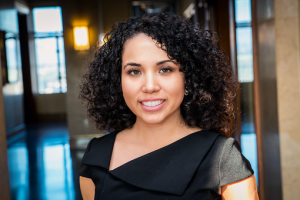
Jeanalee Obergfell – Senior Policy Analyst LA’s Office of Sustainability
Jeanalee Obergfell is a Senior Policy Analyst for Mayor Eric Garcetti’s Office of Sustainability in Los Angeles. She played a key role developing the City of Los Angeles’ Sustainable City pLAn. She leads and supports the implementation of a diverse set of city initiatives regarding land use, water conservation, air quality, food policy, resource recycling, hazardous substance management, pollution prevention and remediation. Jeanalee led the development of the City’s project proposal for the State of California’s Transformative Climate Communities program which awarded the City of LA $35 million for a project that promotes climate and environmental justice in the Watts neighborhood. She is a proud University of California Los Angeles graduate having earned both her BA in Political Science and Chicana/o Studies and Master’s in Urban and Regional Planning there. She is an alumna of the Coro Fellows Program in Public Affairs.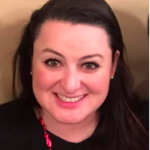
Marce Gutierrez Graundins- Founder and Director- Azul
Marce used to sell fish, now she saves them. An environmental justice advocate who began her career in the commercial fishing and aquaculture fields. Marce is the Founder and Director of Azul, which works with Latinxs to protect coasts and oceans. Through her work,she has helped design and implement a statewide network of marine protected areas as well as sustainability and marketing program for local California fisheries. Marce has been recognized as an “Inspiring Latina working for a cause” by Latina magazine (2014) and as an Aspen Environment Forum Scholar by the Aspen Institute (2012).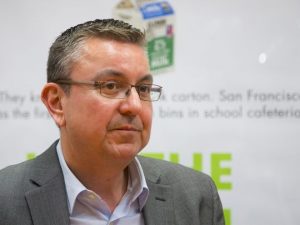
Guillermo Rodriguez- Trust For Public Land State Director
Guillermo Rodriguez is the California State Director for the Trust for Public Land. As head of the state office, he is responsible for developing and leading The Trust for Public Land’s programmatic activities throughout the state. Since 2011, Rodriguez had served as the Policy and Communication Director for the Department of the Environment, City and County of San Francisco, where he oversaw government relations, strategic communications, and media relations. Previously, he was CityBuild Director of former Mayor Gavin Newsom’s Office of Economic and Workforce Development, tasked with developing workforce training programs for economically disadvantaged residents and with attracting and generating “green collar” jobs for San Francisco.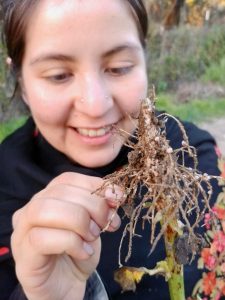
Aidee Guzman
Aidee Guzman works with Southeast Asian and Latinx small-scale farmers embedded in the monoculture landscape of California’s Central Valley. Her research explores how on-farm diversification practices influence soil health and its links to other ecological processes. Aidee’s research aims to use social and ecological research to support farmers and rural livelihoods.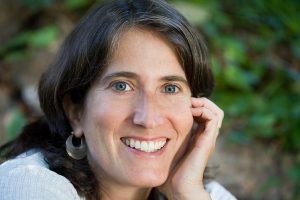
Rachel Morello-Frosch
Rachel Morello-Frosch is an Associate Professor in the Department of Environmental Science, Policy & Management at the UC Berkeley. Her research focuses on environmental health and justice. She is interested addressing high exposures communities of color have to environmental hazards because the vulnerability to toxic effects of pollution is due to poverty, malnutrition, discrimination, and underlying health conditions. Professor Morello-Frosch also evaluates the influence of community participation on environmental health research, science, regulation, and policy-making, as well as developing methods to foster community-based participatory research.Esperanza Vielma
Esperanza serves as chair of the Environmental Justice Advisory Group for the San Joaquin Valley Air Pollution Control District and as a board member on the Environmental Justice Coalition for Water. Over the last two years, she toured the state as an ambassador for the grassroots organization Restore the Delta and was selected to be part of the Delta Leadership Program’s inaugural Class of 2016 by the State of California’s Delta Protection Commission. Linda Escalante
Linda Escalante
Linda Escalante has been with the Natural Resources Defense Council since 2005. She is NRDC’s SoCal Legislative Director working closely with state and local elected officials, as well as with coalition partners, community leaders, and grassroots activists to promote sustainable solutions in areas such climate change, clean energy, water supply/quality, zero waste, toxic chemicals, endangered species, among other environmental issues. Linda is a renowned environmental expert in the U.S-based Spanish language and works to empower and mobilize Latino community and its leaders to engage in advocacy and activism around environmental and health issues. She has been bestowed the Latina Magazine New Generation Award and was named among PODER Magazine’s 100 US Green Latino Leaders. She is also passionate about civil, immigrant and women’s rights. She migrated to the U.S. from Bogota, Colombia as a child and lived as a Dreamer until she went on to UCLA, where she graduated with a Bachelor’s of Science in Biology and minor in Spanish Language. Prior to joining NRDC, Linda worked for the UCLA/RAND Program on Latino Children with Asthma. Linda was appointed in March 2018 to the California Coastal Commission.
 Eduardo Martinez
Eduardo Martinez
Eduardo Martinez was elected to the Richmond City Council in 2014 and has served as Vice Mayor and director on many committees representing the City of Richmond. Mr. Martinez previously was a steering committee member of the Bay Area Parent Leadership Network (PLAN), a voting member of the West Contra Costa Unified School District Budget Advisory Committee (CBAC), and member of the Steering Committee of the Richmond Progressive Alliance and the Representatives Council of the United Teachers of Richmond (UTR). Currently, he is the Board Chair of the East Bay Sanctuary Covenant and the Chairperson of the Richmond Chapter of the Mexican American Political Association (MAPA). Mr. Martinez has taught in community schools, juvenile halls and elementary schools since 1989, and recently retired from teaching at the WCCUSD in 2010. He co-founded March 4 Education and has won the University of Arizona, College of Education, Kenneth S. Goodman “In Defense of Good Teaching” Award. Concerning water issues, he participated in the stakeholders work of CHARG–the San Francisco Bay Region Coastal Hazards Adaptation Resiliency Group and has recently completed the WELL UnTapped program. He currently represents the city on the East Bay Subbasion Sustainable Groundwater Management Stakeholder group as required by SGMA.
 Claudia Christine Avila
Claudia Christine Avila
Claudia is a third year PhD Student in Environmental Sciences at the University of California Riverside. She works with orange growers in the greenbelt of Riverside, mainly trying to understanding how carbon is stored and cycled through agricultural soils given different management practices. She hopes her work will contribute to global climate change mitigation, supplying growers with the knowledge and tools to be proactive.

Michael Wehner
Michael F. Wehner is a senior staff scientist in the Computational Research Division at the Lawrence Berkeley National Laboratory. Dr. Wehner’s current research concerns the behavior of extreme weather events in a changing climate, especially heat waves, intense precipitation, drought and tropical cyclones. Before joining the Berkeley Lab in 2002, Wehner was an analyst at the Lawrence Livermore National Laboratory in the Program for Climate Modeling Diagnosis and Intercomparison. He is the author or co-author of over 165 scientific papers and reports. He was a lead author for both the 2013 Fifth Assessment Report of the Intergovernmental Panel on Climate Change and the 2nd,3rd and 4th US National Assessments on climate change. Dr. Wehner earned his master’s degree and Ph.D. in nuclear engineering from the University of Wisconsin-Madison, and his bachelor’s degree in Physics from the University of Delaware. Sally Moyce
Sally Moyce
Dr. Moyce has been teaching at Samuel Merritt University since 2015 and specializes in community health nursing. She has experience working as a public health nurse in many diverse communities in the United States and abroad, including in primary care clinics, public health settings, and hospice care. Prior to working at SMU, she earned her doctorate at the Betty Irene Moore School of Nursing at UC Davis, and her dissertation work focused on the detection of acute kidney injury in California farm workers. She enjoys both teaching and research and views nursing as the perfect profession to advance social justice.

Khalid Kadir
Khalid is a Continuing Lecturer at UC Berkeley, teaching courses in the Global Poverty & Practice (GPP) program, Political Economy, and the College of Engineering. He received his PhD in 2010 from Berkeley in Civil and Environmental Engineering, where his research focused on pathogen removal in natural water and wastewater treatment systems. While completing his PhD he began studying the complex role that engineering expertise plays in the politics of international development and poverty alleviation, and his current work focuses on the intersection of poverty, expertise, and politics.In 2013 Khalid was selected as a Chancellor’s Public Scholar to create and teach an innovative interdisciplinary engineering course that combines community-engaged scholarship with classroom learning to train future engineers to engage with the social and political roots of their technical work. He was awarded the 2014 Chancellor’s Award for Public Service for Service-Learning Leadership. More recently, in 2017 Khalid received UC Berkeley’s Distinguished Teaching Award, the campus’ most prestigious honor for teaching.
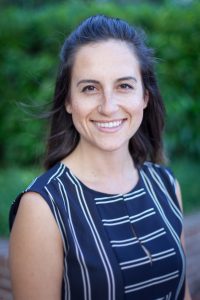
Irene Burga
Irene is the Manager for the CA Climate & Energy program at the Environmental Defense Fund, where she designs and advocates for policies and programs that reduce pollution from the oil and gas industry, increase opportunities for clean energy development, and help areas most underserved and overburdened by poor air quality. Prior to joining EDF, Irene worked on creating and implementing policies and programs that cut energy waste, boost local economies, and reduce harmful pollution in cities for NRDC’s City Energy Project. During her time in law school, Irene held several internships, including at the South Coast Air Quality Management District, where she supported prosecutors in air quality enforcement cases, and at the Conservation Law Foundation where she organized and educated environmental justice communities about the harmful health effects of air pollution. Irene spent time working at the Greater Boston Legal Services and Bet Tzedek Legal Services, where she represented indigent workers against employers who illegally underpaid and overworked migrant employees.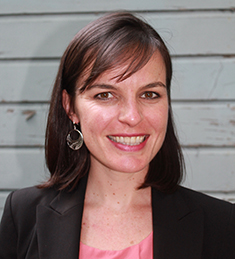


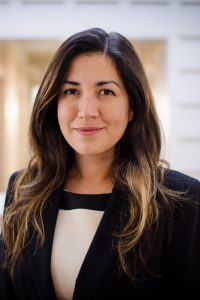 Linda Escalante
Linda Escalante Eduardo Martinez
Eduardo Martinez Claudia Christine Avila
Claudia Christine Avila 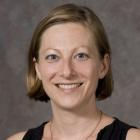 Sally Moyce
Sally Moyce Hortencia Rodriguez
Hortencia Rodriguez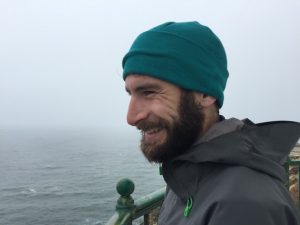 Adam Calo
Adam Calo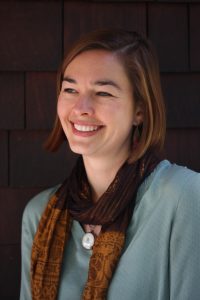 Marigiana Petersen-Rockney
Marigiana Petersen-Rockney